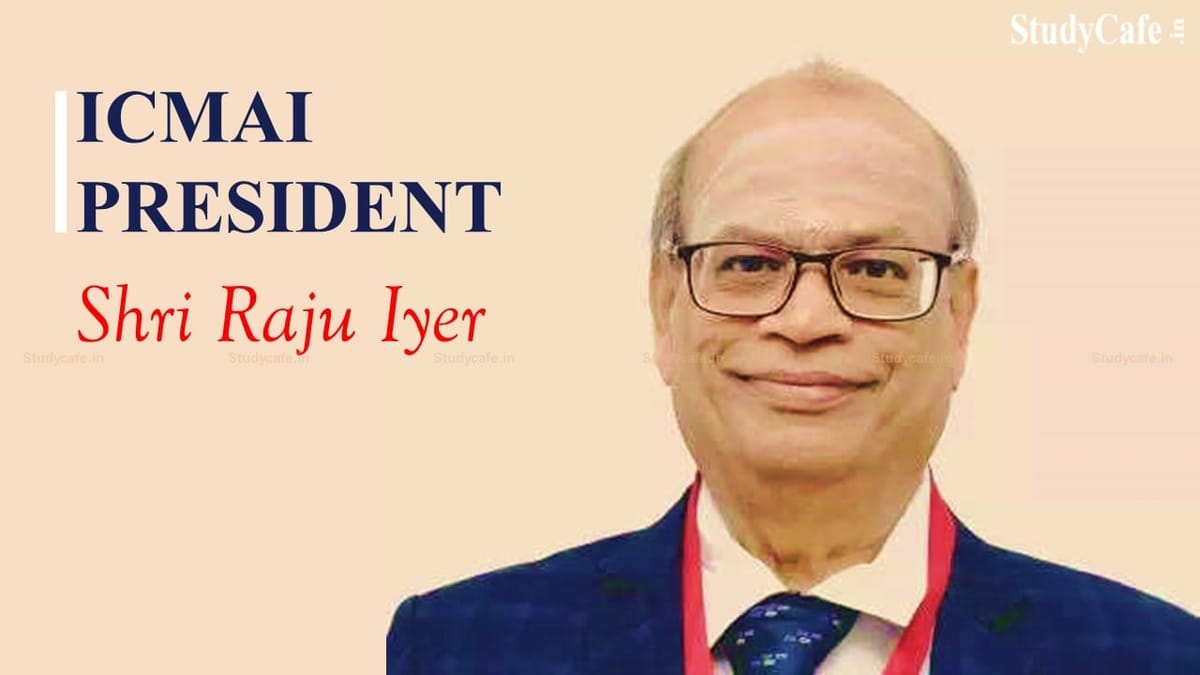Formation of IIAs is a Positive Proposal in the CA Amendment Bill: ICMAI President
Reetu | Apr 1, 2022 |

Formation of IIAs is a Positive Proposal in the CA Amendment Bill: ICMAI President
According to the Institute of Cost Accountants of India President, Raju Iyer, supports the Chartered Accountants, Cost and Works Accountants, and Company Secretaries Bill, 2021. He also supports the proposed development of Indian Institutes of Accounting, stating that monopolistic methods generate inefficiency and corruption.
To summarise, the CA Bill attempts to increase accountant responsibility by reforming disciplinary systems at the Institutes and increasing punishments. It states that the Disciplinary Committee Boards will not be led by members of these Institutes. The Parliamentary Standing Committee on Finance, chaired by Jayant Sinha, advocated the establishment of other academic institutes, such as the Indian Institutes of Accounting, along the lines of IITs and IIMs, in order to terminate the CA Institute’s statutory monopoly. The ICAI has spoken out against the Bill. Meanwhile, the Bill has been passed by the Lok Sabha. The following are edited excerpts from my conversation with the President of the Cost Accountants Institute.
Raju Iyer: We support the proposed Bill since it will improve the Institute’s operations. It would result in greater openness and faster decisions on all disciplinary situations.
Raju Iyer: We are completely in agreement with the government on key provisions such as the formation of a coordination committee, strengthening of the disciplinary framework, enhancing penalties and extending them to firms, granting more autonomy to the Institutes in terms of fee fixation, changes to the register of members, powers, appointments, audit of accounts, and so on. In addition, we had presented our long-pending valid request to the Standing Committee to change the Institute’s name to “Institute of Cost and Management Accountants of India” and its members to be known as “Cost & Management Accountants” rather than “Cost Accountants.” We are overjoyed that the Standing Committee on Finance has made the same recommendation. We are certain that the administration will grant our request and accept the Standing Committee’s recommendations.
Raju Iyer: Allowing audit practise to other accounting professionals and members of several accounting Institutes creates competition on a global scale. Furthermore, licencing and oversight tasks are carried out by independent regulatory authorities. In its findings, the Standing Committee mentioned similar procedures in the United States, the United Kingdom, Canada, Australia, and South Africa, among other places. Monopolistic and restricted methods are well-known to generate inefficiency, complacency, and corruption. Allowing Chartered Accountants to have a monopoly on all financial audits, tax audits, and all other classes of audits of all firms and all other legal organisations is neither in the best interests of the government nor in the best interests of the auditees.
The Standing Committee on Finance advocated for the establishment of several bodies along the lines of advanced countries in order to encourage healthy competition, elevate the standard and quality of auditing and accounting, and improve the credibility of financial reporting. As a result, the development of Indian Institutes of Accounting (IIAs) is undoubtedly a very welcome notion in the wider national interest of increasing the quality of accounting and auditing services through competition.
However, in India, we already have Cost & Management Accountants (CMAs) who are similarly qualified, experienced, and competent professionals eager to fill the vacuum and foster healthy competition in the country’s accounting & auditing sector. As a result, CMAs must be immediately authorised to conduct financial audits of firms under the Companies Act of 2013, as well as tax audits under the Income Tax Act of 1961, which will undoubtedly foster healthy competition and benefit all organisations.
Raju Iyer: The future of the CMA profession would be enhanced if the Institute’s name was changed to “Institute of Cost & Management Accountants of India”; CMAs are included in the definition of “Accountant” under section 288 of the Income Tax Act, 1961; and CMAs are permitted to perform financial audits under the Companies Act 2013.
Source: The Economic Times
In case of any Doubt regarding Membership you can mail us at [email protected]
Join Studycafe's WhatsApp Group or Telegram Channel for Latest Updates on Government Job, Sarkari Naukri, Private Jobs, Income Tax, GST, Companies Act, Judgements and CA, CS, ICWA, and MUCH MORE!"